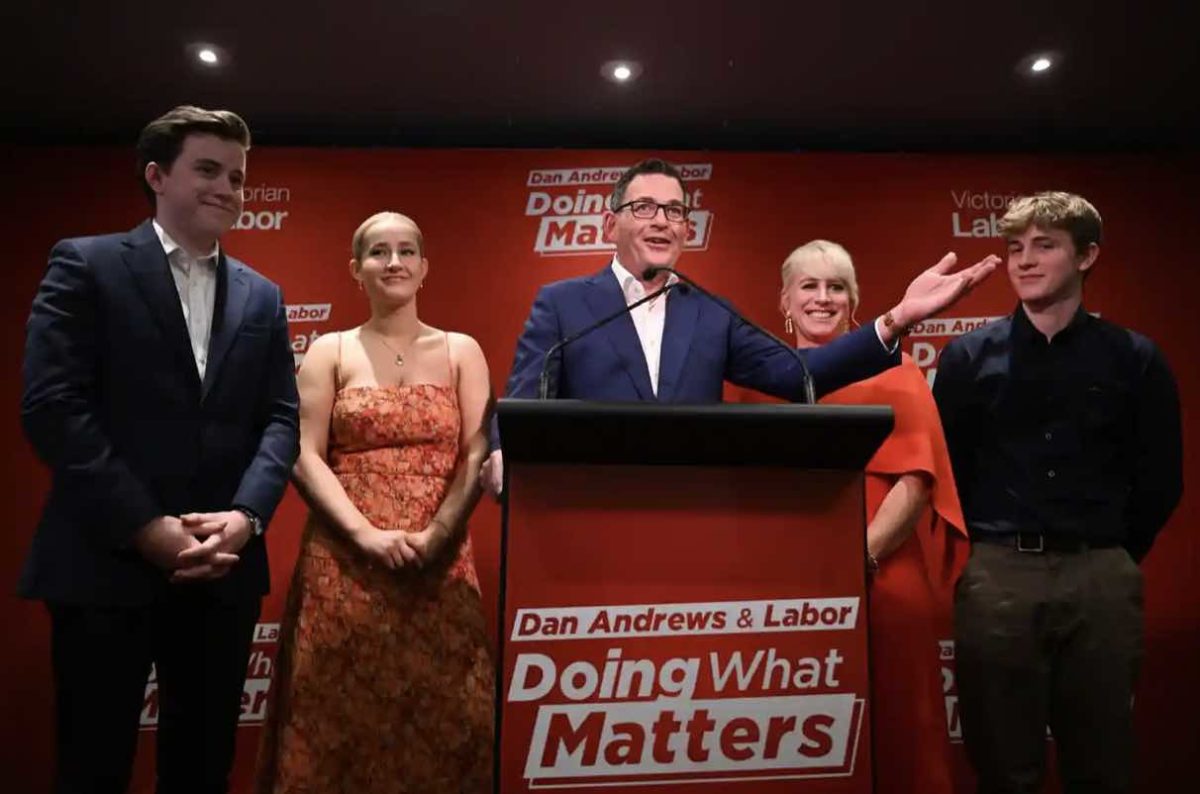We are used to hearing crowds chant for their country, and for their heroes: “Aussie, Aussie, Aussie”, “U-S-A, U-S-A,” or “Me-ssi, Me-ssi,” But when was the last time you heard a group of adults chant for a now disbanded public utility?
“S-E-C, S-E-C, S-E-C, S-E-C” came the cry from the Labor faithful gathered ton Saturday night to celebrate the stunning win of Victoria’s Labor government, and the near complete evisceration of the Liberal Party’s belief that promises of a gas-led recovery could somehow lead to salvation at the polls.
SEC stands for the State Electricity Commission, a body Labor intends to revive, lock into the state’s constitution and lead the push to reach 95 per cent renewables by 2035. The Liberals – still controlled by the fossil fuel agenda – mocked the idea, and promised instead a lot of fracking for new gas.
Did they not take note of what happened at the federal election in May, including in Victoria where a host of senior party leaders, some of whom dearly wanted to be thought of as moderates, got swept from office by people who actually are serious about climate action and the green energy shift?
Ambitious climate agenda
Let there be no doubt that the Victoria Labor Party’s victory is a ringing endorsement of what some describe as the most ambitious climate change agenda in Australia’s political history.
It is not that Victoria will be the first to 100 per cent renewables, others like South Australia will have arrived there a decade earlier. But thanks to its reserves of brown coal that it has been shovelling into its generators for more than half a century, it has the dirtiest grid in the country, and just about the whole world. Its shift is momentous.
Premier Daniel Andrews told his supporters on Saturday night that the victory – which came despite a vigorous campaign against him by nearly the entirety of Australia’s mainstream media – was a triumph of hope over hate, and a validation of the party’s vow to “do what matters.”
The chants of “S-E-C, S-E-C” came as he promised to bring back the state-owned utility to lead the push to its goal of 95 per cent renewables by 2035, and to break the dominance of the big fossil fuel companies which had been so slow to move on emissions and climate.
“Too greedy”
“These big greedy companies have told us they are leaving, and goodbye to them,” Andrews said. “They will be replaced by something better.”
The plan to restore the SEC is a complex issue, and a prospect treated with some concern by many in the energy industry. But – despite the potential pitfalls – it is probably the only rational response to a privatised market that has been incapable of making the transition to green energy of its own accord.
As Andrews notes, the private companies have been too greedy, they’ve stood in the way of ambitious plans for more than a decade, and have ripped off customers at every possible opportunity they had to maximise profits.
You would hope that by now that the industry will have gotten the message, but it may take a while to sink in – particularly when they are cushioned and cocooned by a media so ready to demonise new technologies and to fawn over the words of incumbent players that invite them to the footy.
It’s the 1.5° target that counts
Within hours of the victory, the country’s main oil and gas lobby, the Australian Petroleum Production and Exploration Association, was calling for Labor to open more gas fields and “recognise the role of gas in a cleaner energy future.”
Never mind the vote, or the recognition by scientists – even the International Energy Agency – that there should be no new oil or gas fields if the world is to reach its 1.5°C target.
The fossil fuel industry and its highly paid lobbyists and apologists could not give two hoots about the climate. “F*** that,” is the basis of their policy. But the last few elections have shown that most voters do care. “F*** you,” they’ve said in response. And it couldn’t be any clearer than that.







